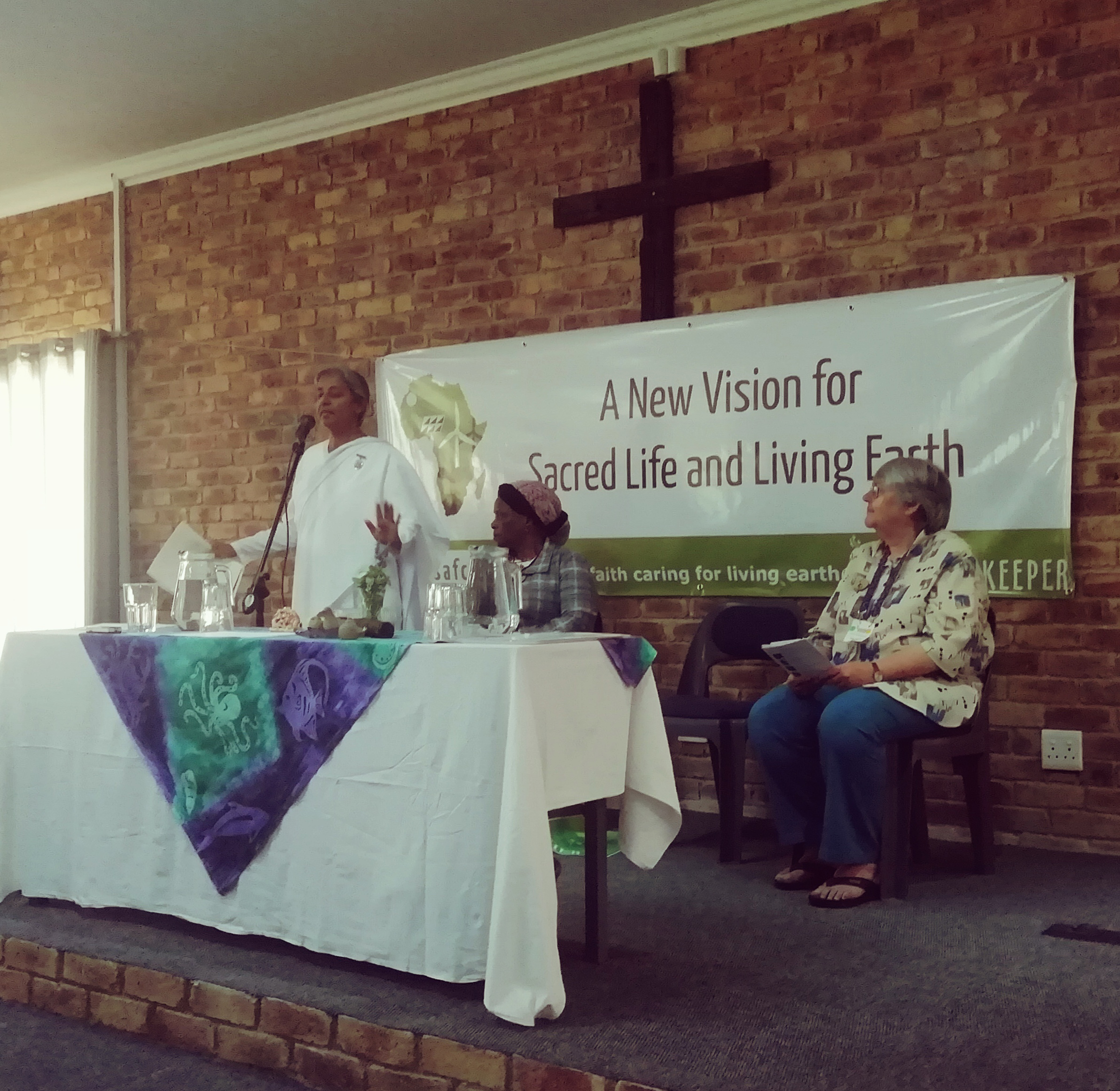Building community resilience in the face of environmental injustice
- Published:

Building community resilience in the face of environmental injustice (Sister Usha Jevan – Brahma Kumaris Spirituality)
Written by Lydia Machaka
Sister Usha offered an impactful input at the closing of SAFCEI’s policy conference – entitled – A new vision for sacred life and living earth - that was held on 5-7 November 2019, Johannesburg. The purpose of this conference was to create a space where faith leaders from Southern Africa and beyond can deliberate, share practices, and jointly develop policy positions on key issues such as Energy and climate justice; Consumerism and waste; Animal justice; planetary boundaries and biodiversity loss; food and climate justice; as well as land and water justice.
In her contribution, sister Usha highlighted that the common denominator or instigator of most of the previous and current environmental problems points to humanity and its mission to save the earth for our survival. We have lost the sacredness of water, air, the land and food. The problem is that needs are exploited for greed and we’ve lost generosity and the value of sharing. This loss comes from a sense of disconnectedness from the spirit. A fragmented self brings weakness and in other words, the integrity of the human spirit is being compromised and the ability to know what is good or right is diminished. However, when one is in harmony with the self, one can live in harmony with others (i.e., all life forms on earth). Sister Usha emphasized that we need to bring back the spirit in the human and that restoring harmony with the self and the environment resides within our faiths through 3 primary qualities/principles below.
- The gift of compassion. She said that we can only be compassionate when we don’t infringe on others rights. We need not limit compassionate to words but compassion need to be practiced in action (walking the talk). But is walk is not always easy when we already have unhealthy habits. She mentioned that a deep spiritual awakening of inner consciousness is necessary for enabling people to embrace and uphold moral values in everyday life and beyond.
- The power of managing our thoughts is at our disposal. Consciousness is integral to the Brahma Kumaris way of life (e.g., living with simplicity, buying compassionately, and being frugal). This way of life contain core values of spirituality found in our faiths. However, when we compromise consciousness in us, we compromise all integrity including the ecological integrity. The way to regain consciousness is to free oneself from greed, selfishness, and the ego through reflective meditation.
- The power of silence: inner silence offers the ability for contemplation, reflection and contentment. It is liberating and brings balance and tranquillity by releasing individuals from busyness, suffering, brokenness of life through the guidance, support and impact from the Divine. It can heal the mind, body, and soul. We can use our collective and positive energies in finding the right decisions and that can make positive changes in our everyday lives.
On the other hand, she underscored that many hungry, poor, vulnerable and disgruntled communities are deprived of the right to water and clean environ continuously. It is hard to react without confrontation. It is not ideal to fight fire with fire (or react in violence) since this can be self-destructive. However, we need spiritual empowerment to triumph over victimization from environmental injustices and we can work together if we tap into the power of the spirit. That can bring real transformation in the way we engage authorities and how we become and transfer the change we would like to see in our communities. These mechanisms require no finances and they are freely available to us. In conclusion she stressed that we need to wake up consciousness from our various faiths and live with integrity. This is what makes the contribution of our faiths unique within the environmental justice space.
Who we are

SAFCEI (Southern African Faith Communities’ Environment Institute) is a multi-faith organisation committed to supporting faith leaders and their communities in Southern Africa to increase awareness, understanding and action on eco-justice, sustainable living and climate change.
Featured Articles
-

South Africa: Who Ends Up Paying If DMRE Cooks the Price of Nuclear Power?
-

South Africa’s nuclear energy expansion plans continue to draw criticism, environmental NGOs chew over legal challenge
-

Earthlife Africa and SAFCEI respond to latest unsettling nuclear news regarding the ministerial determination
-

Open Wing Alliance Africa (Virtual) Summit 2023
-

The Green Connection and SAFCEI respond to energy minister's divisive and deflecting comments
-

Job Vacancy: FLEAT Coordinator







